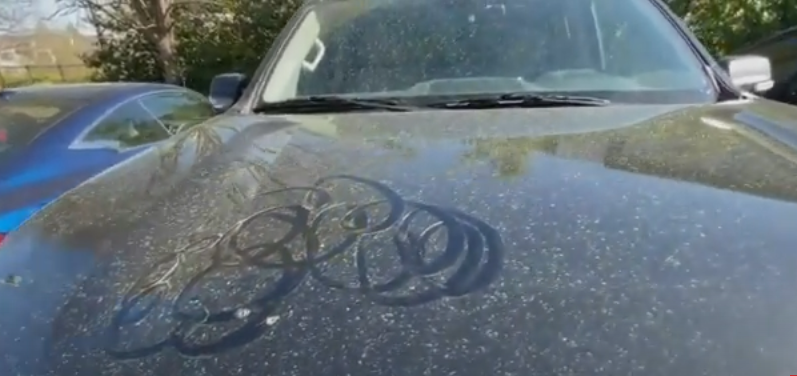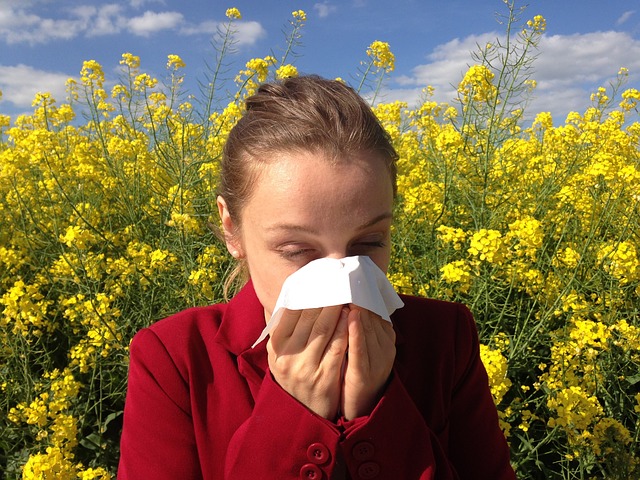Pollen is one of the most common causes of allergies not only here but globally. Besides, it doesn’t matter if you have the best air purifier for pollen because most of it is outside. If you know when the pollen season starts and ends, however, you’ll always be better prepared.
For people with allergies, the body reacts to otherwise harmless particles such as pollen. So, when your body senses the presence of pollen in your respiratory system (especially lungs), it releases histamines to fight it.
This can result in a myriad of symptoms that range from mild to extreme.
Symptoms of Pollen Allergies
Once your body reacts to these foreign particles, you’ll start experiencing some symptoms such as:
- Sneezing
- Coughing
- Runny and/or itchy nose
- Nasal congestion
- Watery eyes that can be itchy
- Fatigue
- Red eyes
- Hives
- Itchiness in the roof of your mouth and throat
- The skin under the eyes turns blue and can swell
These symptoms can last for days to weeks depending on which plants are in the surrounding. However, we are seeing an increase in the duration of pollen season mostly due to the effects of climate change. This is becoming worse each year.
So, we have to do everything in our individual capacities to impact the environment positively. Why do allergies get worse every year, watch the below YouTube video by Vox to find out:
If you have mild symptoms, you can take care of yourself using home remedies. However, if the symptoms become severe, we advise that you head over to the doctor for a quick check-up and medication.
When does pollen season start in Canada? When does pollen season end in Canada? A few years back, we could have a straightforward answer to both of these questions. However, recently, it is becoming harder and harder to accurately predict how long the season lasts.
But we do have an answer for you based on what has been recorded in the last few years.
When Does Pollen Season Start and End in Canada?
Pollen season in Canada starts in late April and ends mid-October. Out of all types of pollen, tree pollen affects people the most, with the birch tree being the worst. Other sources of pollen are grass and ragweed.
Since all these plants produce pollen at different times, each has its duration, but they overlap throughout the pollen season.

In Canada, tree pollen season starts in late April and lasts for about 4 weeks up until the end of May. Grass pollen season runs from mid-May to the end of July while ragweed pollen season starts mid-August till mid-October.
Up to 25% of all Canadians are allergic to one or more types of pollen.
What to Do During Pollen Season to Minimize Allergies
During pollen season, it is nearly impossible to avoid getting symptoms. Pollen is all over, especially in the ‘401 corridor’ from Montreal to Toronto. According to Aerobiology Research Laboratories, these states had the highest pollen counts in 2021.
However, you can do something to better protect yourself and your family from having a terrible month or two. Some people can be down for months on end if they also react to other substances apart from pollen. Exposure to multiple allergens results in worse symptoms.
The most important thing is to stay away from the pollen as much as possible. But how? Here are a few tips to help you stay away from bad allergies during pollen season:
- First, keep up to date with pollen count forecasts.
- If you can, stay indoors especially during windy days and nights.
- Get yourself a pollen mask if you must leave the house. A painter’s mask should work just fine.
- Avoid hanging laundry outside.
- Buy a good air purifier for pollen (one with a HEPA or True HEPA filter). Check out our review of the best air purifiers for pollen in Canada for some great options.
- Delegate a few tasks such as lawn mowing to avoid agitating the pollen.
- Remove clothes and put them in the washing machine as soon as you come back home.
- Take a quick shower to rinse off any pollen that may have landed on your hair and skin.
- If you react badly to pollen, take medication before the symptoms start.
- Rinse your nasal passage with saline solution.
- If symptoms worsen despite taking over-the-counter medication, go to the hospital ASAP.
- If you can, you can relocate till the pollen season is over.
What is Pollen Count?
For you to manage your symptoms well, you need to understand the term pollen count. This, in addition to knowing when the pollen season starts, will help you manage your work and home chores effectively. Since pollen is too small to be seen by the eye, your best bet is to rely on daily pollen counts.
Pollens counts calculate the amount of a particular type of pollen in a specific amount of air during a given period, usually 24 hours. This information is readily available via radio and TV stations as well as online.
You can simply go to The Weather Channel or The Weather Network websites for pollen count info and forecasts. Once you’re armed with this information, you can plan accordingly to avoid undue stress and excessive symptoms.
Conclusion
Pollen season in Canada starts in late April and lasts until mid-October. This is because there are up to three different types of pollen that cause problems to allergy sufferers – tree, grass, and ragweed.
Tree pollen comes first followed by grass the ragweed pollen. The whole pollen season is long because the three individual seasons overlap. During this period, millions of people suffer from mild to severe symptoms that may require a doctor’s attention.
However, knowing when the pollen season starts as well as how your body reacts to pollen will help a lot in planning. If you can, avoid going outdoors during pollen season or days when the pollen count is too high.
You can even move to a state where the level of pollen is low, especially if you work from home or can work remotely. All in all, the best solution is to stay away from it. Also, install a good air purifier that can capture any pollen that finds its way indoors.

